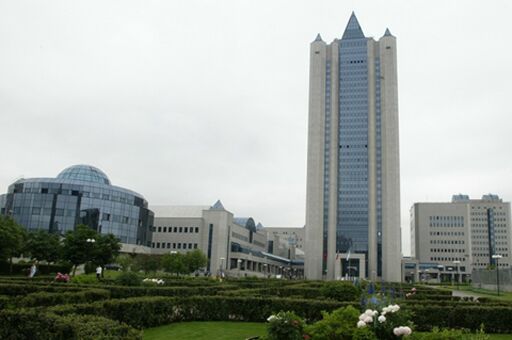
Skittish About EU, Russia Looks East for Energy Customers
Internal European Union bickering over who will host strategic Russian natural gas conduit routes is spurring Russia to develop alternative energy export markets in eastern Asia. This is not good news for the European Union, which depends heavily on Russian fuel to keep the lights and heat on.
At a UN conference November 28, Russian state-controlled energy conglomerate Gazprom warned the EU that liberalization of the European energy market, along with political problems within the Union, was forcing the company to “look increasingly toward rival markets in Asia” (EUbusiness, November 28).
Gazprom criticized the liberalization of the European gas and electricity markets, which are set to open fully to competition in July 2007, saying that the uncertainty being created was preventing the company from planning investment related to energy supplies to Europe (Russia & cis Business & Financial Daily, November 29).
“Liberalization itself creates uncertainty for the producer countries and this could cause a supplier shortfall for the next decade,” Stanislav Tsygankov, a senior executive at Gazprom, said. Nevertheless, he said, existing commitments made to Germany’s energy provider E.On and the Italian energy company eni would be honored.
The EU has tried to pressure Moscow to liberalize its energy sector and break up Gazprom’s monopoly on gas extraction and transportation infrastructure. Gazprom is the company that shut off natural gas supplies to the Ukraine in January in what many saw as a political dispute between the two countries. It is natural that the EU would rather deal with a smaller, less powerful Gazprom in any future energy negotiations.
But in another sense, Russia’s concerns regarding having Europe as a business partner are justified. Political conflicts between the various European nations can seriously impede the efficient functioning of the EU. For example, Poland has used its veto to delay talks on natural gas supplies and prices, and has spoken out against the development of the controversial Baltic “Nord Stream” pipeline, which would deliver gas from Russia directly to Germany before further transmission throughout Western Europe.
“The Polish approach has set a very worrisome precedent for EU external relations,” said Tsygankov, “and we believe the situation will only get more difficult with the EU today.”
Poland is afraid of being cut out of the European energy transmission network by increased Russian-German cooperation. Poland relies on Russian energy transmission royalties earned by allowing gas to be transported through its country to the West. If the new Baltic pipeline proceeds, it will be possible for Russian energy supplies bound for Western Europe to bypass Poland altogether. This would increase Russia’s leverage over Poland, giving Moscow bargaining power to raise natural gas prices for Poland without affecting the rest of the EU (as happened when Gazprom shut off gas to the Ukraine). However, the new pipeline would also have the side effect of making Europe much more dependent on Germany for its energy needs.
“This has seriously worried us,” Tsygankov told Europe’s Committee on Sustainable Energy. “If in Poland there are new concerns about energy security, which are raised in the EU, we believe that the Polish part of the supply pipeline to Europe is really in jeopardy.”
“Europe needs to settle these problems, it is in its interest,” Tsygankov said. Until it does, he said, Russia will be “looking toward the East.”
Tsygankov highlighted Gazprom’s agreement to deliver 30 billion cubic meters of gas annually to China starting in 2011. Discussions with South Korea for deliveries from 2010 are also proceeding.
Europe is definitely in a chilling energy position. It deeply relies on an energy supplier that has shown itself capable and willing to use its energy resources as a political and physical weapon. Now, Russia is developing energy transmission capabilities in the East, which will enable it to send more of its vital energy reserves to Asia—an event that will increase its leverage over Europe exponentially.
Events foreshadow a coming world conflict in which energy supplies will play a central role. For more information, read “Stoking the Engines of Empires” and “The Battleground.”
